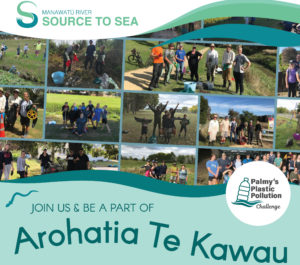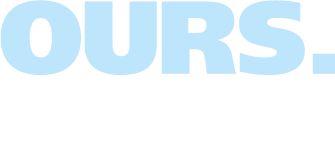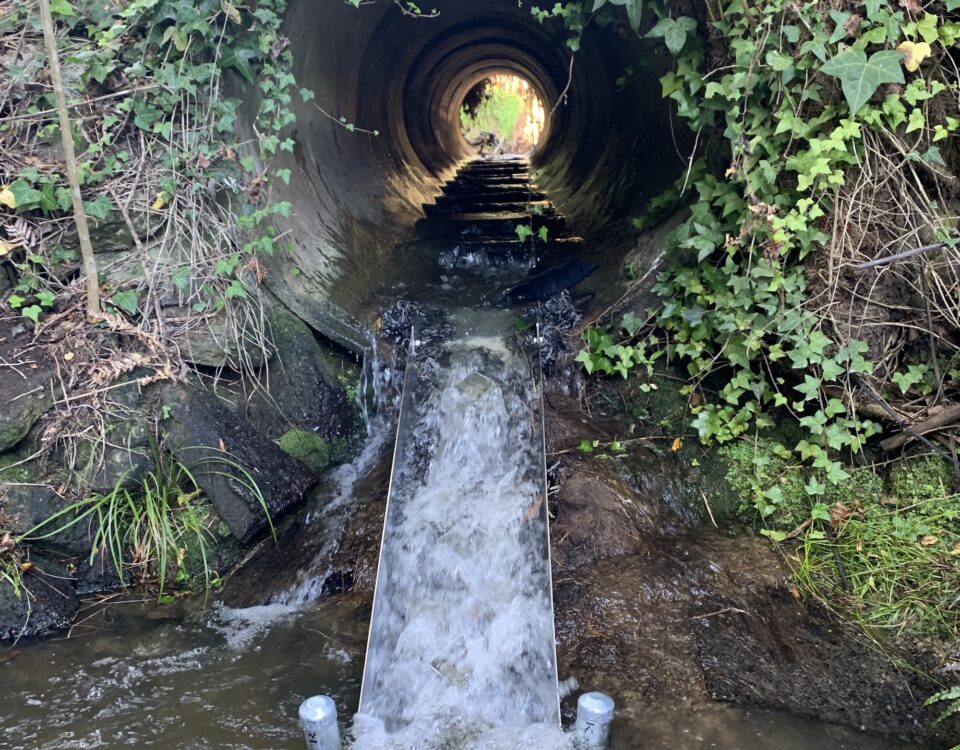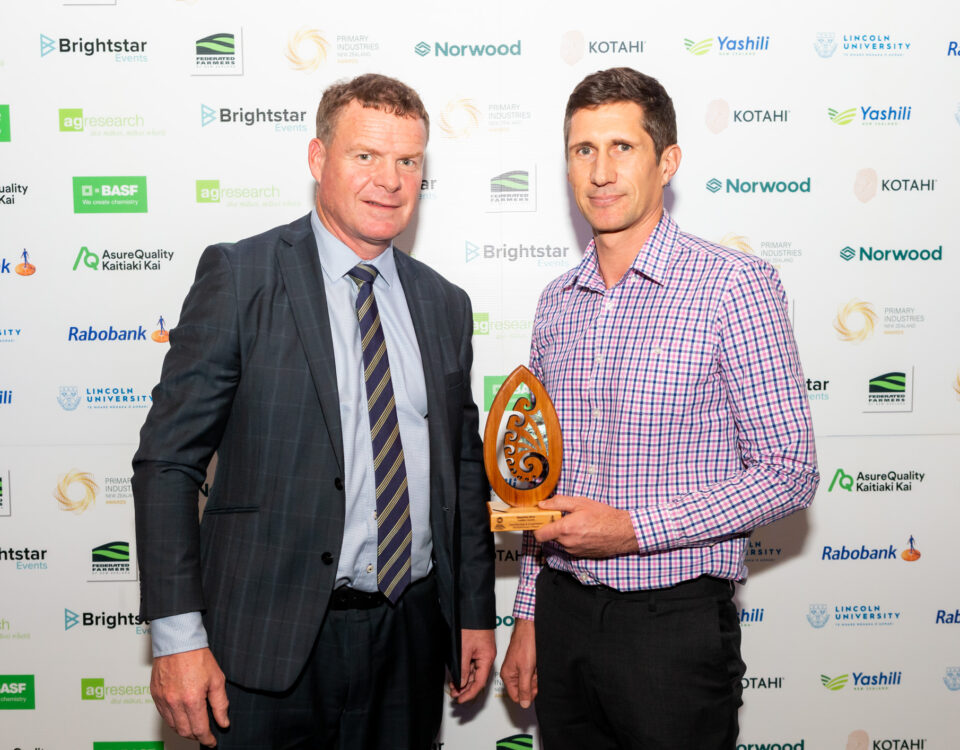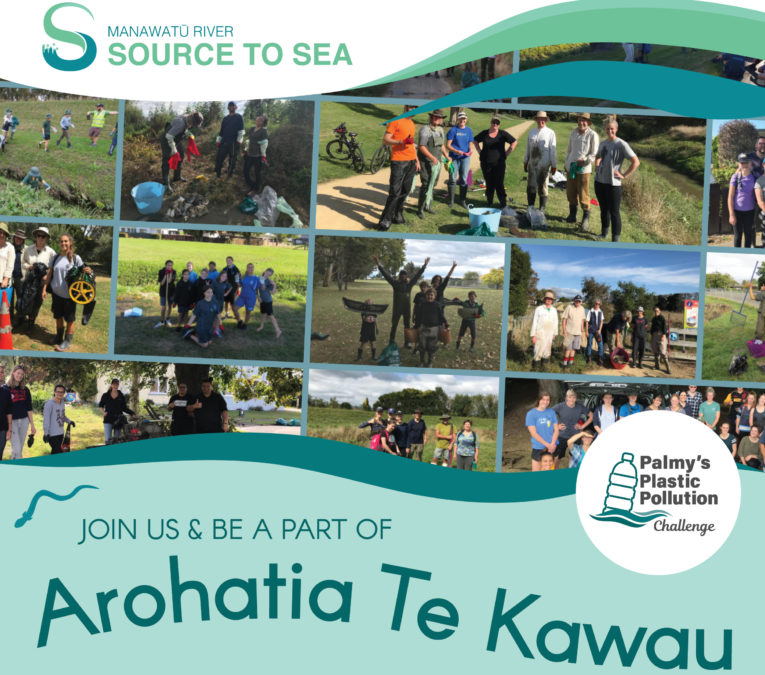
A media release from Manawatū River: Source to Sea about its ‘Arohatia Te Kawau’ initiative.
Talk to anyone that lived near Te Kawau stream in the 60s and 70s and you’ll hear about ‘clear as’ waterways teaming with eels, fish and watercress. Many locals have happy childhood memories of swimming in the creeks and the Manawatū river every summer day and of neighbourhood water fights held across sparklingly urban streams.
Unfortunately, the current state of Te Kawau isn’t a patch on what it used to be. There are still a few eels and fish in there, but you are much more likely to spot plastic litter in the stream nowadays than wildlife.
Te Kawau flows across the city from Colquhoun Park on JFK Drive, to the meet the river in Awapuni. Up to 50% of Palmerston North’s stormwater is piped to this stream. It’s often thought of as a drain rather than a stream, and few people know its name. This needs to change. We need to work towards restoring our urban waterways to their former glory. This will ensure that they, the Manawatū awa that they flow into, and the Foxton Estuary where the water heads out into the ocean, flourish for generations to come.
Palmy’s Plastic Pollution Challenge (PPPC) is inviting everyone to join them and do some good in their neighbourhood this spring as part of the “Arohatia Te Kawau” project. This is launching at 5.30pm on Monday 31 August at Te Manawa and all are welcome to attend. Come along to learn about the steps that are being taken at all levels here in Aotearoa to rethink our country’s relationship with plastic. Plus to hear about our vision for a Palmy with much less plastic in it, our community-developed strategy to achieve this and our action plan for the next 12 months.
Following the launch, PPPC are going to spring clean Te Kawau Stream from top to bottom alongside a wide range of local school, community, business, public and cultural groups during September. We will also be running events and workshops in parallel with the aim of finding local solutions to try to prevent plastic and litter getting back into our urban waterways. The first of these events will be an engaging, informative and evidence-based presentation titled “Doing Something about Palmy’s Plastic Problem: what part will you play?” on Tuesday 1 September from 5.45pm at Te Manawa. This is being led by Hannah and Liam from The Rubbish Trip and is sure to be an entertaining evening.
An “Arohatia Te Kawau” event calendar will be active on the Environment Network Manawatū website later on this week. Due to the on-going Covid-19 situation, events may be subject to change at short notice, so keep an eye on the calendar and the PPPC Facebook page for up to date information.
Siobhan Karaitiana who works for Te Ao Turoa Environmental Centre, the environmental advisory office for Rangitāne o Manawatū, is leading the spring clean and has been monitoring Palmy’s urban streams over the past few years. Siobhan estimates that during that time, with the involvement of about 300 people, she’s probably removed about 5 tonnes of rubbish from just one section of Te Kawau.
Siobhan has a very clear vision for a brighter, cleaner future. “Our water is our treasure, our taonga, and we need to care for it. I’d love to see children safely splashing around in Te Kawau and enjoying watching the wildlife there again. The water quality has been declining since the 1980’s. There isn’t an overnight fix for restoring the stream. This is a long-term project. However, the stream has got worse in living memory. There’s no reason why we can’t make serious change for the better starting now. And the more of us that get involved, the better the benefits for everyone.”
Heather Knox is coordinating the PPPC project and is setting up events to align with the stream cleaning. “We’re all aware that removing the litter from Te Kawau is treating the symptoms, rather than the causes, of the plastic litter problem. But there is stuff in our waterways now that shouldn’t be there, and for the sake of water quality and wildlife, we need to take it out. As a city though, it would be awesome to start identifying cures, so that we don’t have to repeatedly clean up.”
“We need to find actions that we can all take to stop plastic getting into the water in the first place. This goes beyond just putting your litter in the closest bin. Though that’s a great first step! Plastic has a much longer lifetime than you or I and most of it can’t be meaningfully recycled so ends up in the landfill. The goal of the spring PPPC programme is to share information about reducing plastic use, to come up with local solutions and start showcasing Palmy as a city that can come together to make a positive difference. Think of what we can achieve as a team of 80 thousand!”
Siobhan and Heather are keen to encourage any individuals, schools, groups or businesses that are keen to have some fun alongside the stream and make a positive local environmental impact to get in touch. The event calendar is filling up fast, but the PPPC team are happy to work with as many people as possible. Siobhan explains why:
“We’ve pledged to clean up Te Kawau stream in this next second phase of the PPPC and many hands make light work. We find that there is a really great atmosphere at our clean-up events and everyone leaves feeling like they’ve made a difference.”
It’s a wonderful feeling to know that by simply removing litter from a stream you’ve improved our waterways and could be saving the lives of our precious Aotearoa bugs, fish, birds and marine animals further downstream. We all want to be good ancestors and by joining this project you’ve got an opportunity to leave a lasting legacy here in Palmy.”
Background:
Palmy’s Plastic Pollution Challenge (PPPC) was set up in 2019 to understand the scale of plastic pollution going into the Manawatū river via our urban streams and to use this knowledge to improve the health of our local waterways. The challenge is a collaboration between Manawatū River Source to Sea (an entity of Environment Network Manawatū (ENM)), Massey University’s Zero Waste Academy, Rangitāne o Manawatū and Palmerston North City Council. Te Kāuru Eastern Manawatū River Hapū Collective in Dannevirke and RECAP in Ashhurst joined challenges in 2020. A wide range of school children, students, community members, companies, council staff and academics have been involved to date.
This year’s challenge is about implementing strategies developed during the June 2019 PPPC workshop with members of the community. Most of urban Palmerston North City is built on top of Te Kawau stream catchment and the 2019 PPPC results showed that it is also where the largest amount of plastic litter is accumulating. Therefore, Te Kawau is the focus of the first PPPC neighbourhood restoration pilot project.
Read the 2019 report here.
Speakers at the launch event on the 31st August include:
- Dr Rachel Chiaroni-Clarke – Office of the Prime Minister’s Chief Science Advisor
- Dr Heike Schiele – Co-Chairperson of Environment Network Manawatū
- Siobhan Karaitiana – Te Ao Turoa Environmental Centre
Learn more about The Rubbish Trip here.
